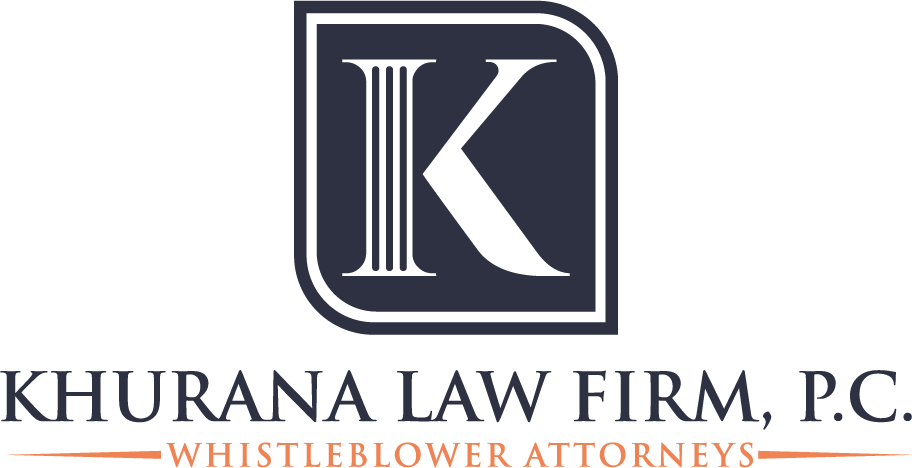
Healthcare Whistleblower Attorney
Healthcare Whistleblower Attorney. When a medical professional treats a Medicare patient, the provider must report what services were provided to make sure Medicare reimburses the doctor appropriately for the services rendered. Certain conditions are more severe than others and require more costly care, which may mean that doctors can receive higher reimbursements from Medicare for treating these patients. In some cases, a healthcare provider may engage in upcoding – misreporting healthcare services or the severity of a patient’s condition, in order to receive higher reimbursement from Medicare. If you are a healthcare professional who is aware of potential upcoding in your work environment, it is vital to contact a healthcare whistleblower attorney immediately.
Healthcare whistleblower attorney is a legal professional who specializes in representing individuals who have information about fraud, waste, or abuse in the healthcare industry. These attorneys work to protect the rights of whistleblowers and help them navigate the complex legal process involved in bringing their claims forward.
Upcoding is a practice that involves billing for a more expensive medical service or procedure than was actually provided to the patient. For example, a healthcare provider might bill for a more complex surgical procedure than was actually performed, or bill for a longer hospital stay than the patient actually had.
Upcoding is illegal because it constitutes fraud and can result in overpayment by insurance companies or government healthcare programs like Medicare or Medicaid. When providers engage in upcoding, they are essentially stealing money from these programs, which are intended to provide healthcare services to those in need.
Upcoding can also lead to overutilization of healthcare services, as providers may be incentivized to perform unnecessary procedures or provide more expensive treatments than are actually needed in order to maximize their reimbursements.
Whistleblowers who have information about upcoding or other forms of healthcare fraud may be able to bring a lawsuit under the False Claims Act, which allows them to sue on behalf of the government and potentially receive a portion of any monetary recovery obtained in the case. A healthcare whistleblower attorney can help guide individuals through the process of bringing a False Claims Act case and protect their rights throughout the legal process.
Whistleblower Attorneys Help Protect the integrity of the Medicare System
Medicare is the US government health insurance plan for people over the age of 65. When a medical provider provides services to an eligible Medicare patient, they submit an electronic form to Medicare that uses procedure codes (HCPCs) to tell them what services were provided. The process is efficient when providers certify their claims as true, accurate, and complete.
After submitting a claim for reimbursement, Medicare reviews the details of the claim and if approved, pays out accordingly. The Medicare system relies on the information submitted by providers. Providers are responsible for checking that they have used the correct procedure code and have performed all of their services correctly. Providers are subject to less oversight because Medicare does not have the means to double-check all information submitted. Providers must be careful to submit accurate information to maintain a good reputation and avoid being excluded from the program altogether.
Healthcare whistleblower attorney play an important role in protecting the integrity of the Medicare system by representing individuals who have information about fraud, waste, or abuse in the healthcare industry. The Medicare system provides essential healthcare services to millions of Americans, and it is crucial that the system operates efficiently and effectively.
Unfortunately, there are instances of healthcare providers and organizations committing fraud or engaging in other illegal activities that can undermine the integrity of the Medicare system. Whistleblower attorneys can help combat this by representing individuals who have information about such activities and assisting them in filing a qui tam lawsuit under the False Claims Act.
The False Claims Act allows individuals to file lawsuits on behalf of the government, alleging that a company or individual has defrauded the government. If successful, the whistleblower can receive a portion of any recovered damages. Whistleblower attorneys can assist their clients in filing these lawsuits and navigating the legal process.
By encouraging individuals to come forward with information about fraud and other illegal activities, whistleblower attorneys can help to protect the Medicare system and ensure that it is providing high-quality healthcare services to those who need them.
What does “upcoding” mean?
Upcoding or code manipulation refers to the act of purposefully misreporting the health care services provided in order to receive higher reimbursement from the insurance programs. Upcoding is a common form of Medicare fraud that classifies treatments as being more complex or costly than what would be needed to address an individual’s needs.
Medicare may pay out more money than is necessary to providers who perform services for Medicare beneficiaries because some healthcare providers will falsely bill Medicare by giving them a service that they didn’t really perform and claiming to have done so. For instance, if a physician performs a minor chest procedure but bills Medicare using the billing code for major heart surgery, they may have engaged in upcoding fraud.
The False Claims Act (FCA) imposes liability for fraudulent “upcoding” of claims.
The False Claims Act, established in 1863 to combat fraud against the government, prohibits individuals from submitting false or fraudulent claims. Under this law, those who sue can keep a portion of what is recovered if they have knowledge of alleged Medicare fraud. The FCA also provides incentives for private-sector whistleblowing by protecting healthcare workers from certain types of retaliation for reporting in good faith.
Yes, that is correct. The False Claims Act (FCA) imposes liability for fraudulent “upcoding” of claims. Upcoding is a practice in which a healthcare provider submits a claim to Medicare or another government healthcare program for a more expensive service or treatment than was actually provided or necessary. This can result in the government overpaying for services and is considered fraud.
Under the FCA, anyone who knowingly submits false or fraudulent claims for payment to the government can be held liable for up to three times the government’s damages plus civil penalties. This includes upcoding of claims. Whistleblowers who have information about upcoding and other forms of healthcare fraud can file a qui tam lawsuit under the FCA on behalf of the government.
Upcoding is a serious problem in the healthcare industry, and it can lead to significant financial losses for the government and taxpayers. The FCA provides an important tool for combatting this type of fraud and holding healthcare providers accountable for their actions.
National Healthcare Whistleblower Attorney
A national healthcare whistleblower attorney is a legal professional who specializes in representing healthcare whistleblower attorney who report fraud, waste, or abuse in the healthcare industry. These attorneys assist individuals who work in the healthcare industry, such as doctors, nurses, hospital administrators, and other employees, who have information about fraudulent activities that are being committed by their employers or colleagues.
The attorney’s primary goal is to protect the rights of the healthcare whistleblower attorney and help them file a qui tam lawsuit under the False Claims Act. This act allows healthcare whistleblower attorney to file a lawsuit on behalf of the government to recover funds that were fraudulently obtained from government programs, such as Medicare and Medicaid.
In addition to representing whistleblowers in court, national healthcare whistleblower attorney may also provide legal advice and guidance to clients on matters such as reporting requirements, retaliation protection, and potential monetary rewards for their whistleblowing activities.
These healthcare whistleblower attorney may work for law firms that specialize in healthcare fraud litigation or may be employed by government agencies, such as the Department of Justice or the Securities and Exchange Commission. They must have a deep understanding of healthcare law, the False Claims Act, and other relevant regulations and statutes.
Overall, a national healthcare whistleblower attorney plays a critical role in protecting the public from healthcare fraud and ensuring that those who commit fraud are held accountable for their actions.
Medicare fraud negatively impacts everyone, but whistleblowers are heroes that effectively protect our healthcare system. When you become aware of Medicare fraud upcoding in your workplace, you need the advice of an experienced whistleblower attorney who can ensure that your claim is fully investigated and filed promptly and accurately.
At Khurana Law Firm, P.C., we have many years of experience as national qui tam lawyers that can help fight against Medicare fraud. For a free, confidential evaluation call (888) 335-5107.




